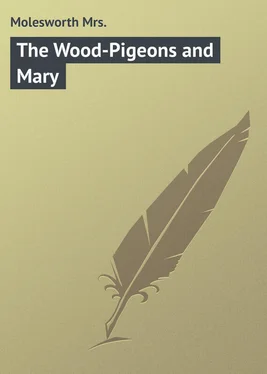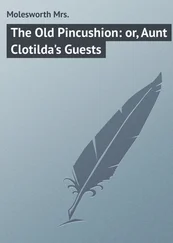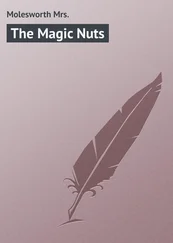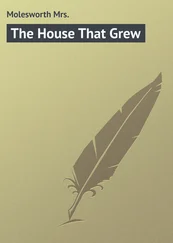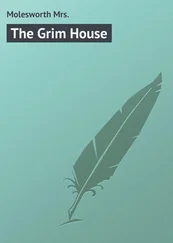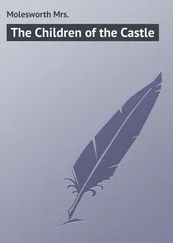Mrs. Molesworth - The Wood-Pigeons and Mary
Здесь есть возможность читать онлайн «Mrs. Molesworth - The Wood-Pigeons and Mary» — ознакомительный отрывок электронной книги совершенно бесплатно, а после прочтения отрывка купить полную версию. В некоторых случаях можно слушать аудио, скачать через торрент в формате fb2 и присутствует краткое содержание. Жанр: foreign_prose, на английском языке. Описание произведения, (предисловие) а так же отзывы посетителей доступны на портале библиотеки ЛибКат.
- Название:The Wood-Pigeons and Mary
- Автор:
- Жанр:
- Год:неизвестен
- ISBN:нет данных
- Рейтинг книги:5 / 5. Голосов: 1
-
Избранное:Добавить в избранное
- Отзывы:
-
Ваша оценка:
- 100
- 1
- 2
- 3
- 4
- 5
The Wood-Pigeons and Mary: краткое содержание, описание и аннотация
Предлагаем к чтению аннотацию, описание, краткое содержание или предисловие (зависит от того, что написал сам автор книги «The Wood-Pigeons and Mary»). Если вы не нашли необходимую информацию о книге — напишите в комментариях, мы постараемся отыскать её.
The Wood-Pigeons and Mary — читать онлайн ознакомительный отрывок
Ниже представлен текст книги, разбитый по страницам. Система сохранения места последней прочитанной страницы, позволяет с удобством читать онлайн бесплатно книгу «The Wood-Pigeons and Mary», без необходимости каждый раз заново искать на чём Вы остановились. Поставьте закладку, и сможете в любой момент перейти на страницу, на которой закончили чтение.
Интервал:
Закладка:
Mrs. Molesworth
The Wood-Pigeons and Mary
Chapter One.
“Such Big Tears.”
“Mary is crying,” said Mr Coo.
“No!” replied Mrs Coo.
But Mr Coo said again —
“Mary is crying,” and though Mrs Coo repeated —
“No!” she knew by the way he held his head on one side and looked at her, that he was very much in earnest indeed.
I must tell you that when Mrs Coo said ‘no,’ it went off into a soft sound that was almost like ‘coo’; indeed most of her talking, and of Mr Coo’s too, sounded like that, which is the reason, I daresay, that many people would not have understood their conversation. But it would be rather tiresome to write “no,” or other words, with double o’s at the end, so I will leave it to be fancied, which will do just as well. There is a great deal of conversation in the world which careless people don’t understand; a great deal which no one can understand properly, however much they try; but also a great deal that one can get to understand, if one tries, even without the gift which the dear fairy bestowed on the very lucky prince in the long ago story. I forget his name, but I daresay some of you remember it. The gift was the power to understand all that the beasts and birds say.
This very morning the wind has been talking to me a good deal – it was the south wind, and her stories are always very sweet, though sometimes sad, yet I understand a good deal of them.
After this second “No,” Mr and Mrs Coo sat looking at each other for a moment or two, without speaking.
Then said Mr Coo —
“It must be something – serious. For Mary scarcely ever cries.”
“True,” said Mrs Coo, “true.”
But she did not say anything more, only she too held her head on one side and kept her reddy-brown eyes fixed on Mr Coo. They seemed to ask, “What is to be done?” only as she nearly always depended on Mr Coo for settling what was to be done or if anything was to be done, she did not need to say the words.
“Mary scarcely ever cries,” he repeated. “There were large drops, quite large ones on her cheeks.”
“As large as raindrops?” asked Mrs Coo.
“Larger – that is to say as large as large raindrops – the kind that come when it thunders,” said Mr Coo.
“Oh dear,” sighed Mrs Coo, thinking to herself that Mary’s trouble must be a very bad one indeed if her tears were so large. She wanted very much for once, to ask what could be done, but she saw that Mr Coo was considering very deeply, so she did not interrupt his thoughts.
At last he turned to her.
“I heard something,” he said. “Very little, but enough to help me to put two and two together.”
“To make four,” said Mrs Coo quickly. She felt rather proud of her arithmetic, though she did not understand what Mr Coo could mean, as she had never heard the saying before. “Four what , my dear?”
“Four nothing,” was the reply – rather a cross one. “It is an expression. You are not as used to human talk as I am, you see,” he went on more amiably, for it is not the way with the Coo family ever to be cross for more than a moment, and if ever they are, they are sorry immediately. “Never mind about the two and two. What I heard was only a few words, but it has decided me that I must hear more, for,” and here Mr Coo’s tone grew very solemn, “it had to do with us !”
Mrs Coo was so startled that she repeated Mr Coo’s words, which was one of the few things that tried his temper.
“It had to do with us ,” she said. “How could that be? We have never done anything that could make Mary cry, especially such very large tears.”
“Yes,” said Mr Coo, “we have done one thing. We have left the Square Gardens.”
“But that was some time ago,” said Mrs Coo, “and she did not cry when very sweetly.”
Mr Coo gave what was for him a little cough – a sort of “h’m.”
“To tell you the truth,” he said, “I have never felt perfectly sure that she understood my explanation that day. Still, you are right so far. I have seen her several times since then, and though she was putting her head out of the window as far as she dared, and looking towards our tree, where the nest is already falling to pieces, she was certainly not crying .”
“Perhaps she saw you yourself, and felt sure we had not really left for good?”
“No,” said Mr Coo, “she did not see me the day she put her head so far out of the window. I was watching her, for I was a little afraid she might already be missing us. But she only looked at the tree and seemed quite happy.”
“Is it since then that the nest has fallen to pieces, do you think, Mr Coo?” asked Mrs Coo.
She was rather a clever little wood-pigeon after all, though Mr Coo scarcely thought so.
“Yes,” he replied. “There was a great deal of wind last night and the night before – I fancy the wind blew it down. This morning there is almost nothing to be seen of it.”
“Then that was why Mary was crying,” exclaimed Mrs Coo.
But again Mr Coo shook his head, or at least turned it to the other side, which meant that he did not agree with Mrs Coo.
“ That would not explain the words I heard,” he said.
“What were they?”
“She was crying,” Mr Coo replied, “crying and leaning against the window, and the window was open, and I heard her say, ‘He doesn’t believe me, he doesn’t believe me. It’s too bad of the Cooies – ’ she calls us the Cooies, you know, my dear.”
“Yes,” said Mrs Coo, nodding her head gently, “I know.”
“It’s too bad of the Cooies,” she said again, Mr Coo went on. ”‘I believe they’re not Cooies at all, but very unkind, tricky fairies.’ She said that – she really did.”
“Dear, dear, it’s very sad, very sad indeed,” said Mrs Coo, and her voice was exceedingly low and mournful. “ Mary to think that of us. Something must be done, Mr Coo, something must be done.”
“Of course it must,” he agreed. “I must go back then this very afternoon and try to see her and find out all about the trouble.”
“Shall I come too?” asked Mrs Coo.
“Certainly, if you like,” said Mr Coo.
In his heart, he was very pleased to have her company, but he was not very fond of allowing that he was not quite able to manage everything by himself.
“Certainly, if you like,” he repeated, “but just as you choose.”
“Then I think I will come,” she said. “For one thing, Mary will be pleased to see both of us together, I feel sure, and perhaps it may be easier to catch her eyes if we are both there. We can fly about a little just in front of her window as we used to do, and call out to each other. But I hope she will not be crying – at least not such very large tears. It would be almost too much for my feelings,” and she gave a deep sigh – a real sigh, though it sounded like a very soft and melancholy “coo.”
So, rather late that afternoon, the two wood-pigeons set off. It was a pretty long fly to the square where Mary lived, but they thought it better not to go earlier, for as it was now autumn and the days were beginning to get shorter, they knew that the children went out for their second walk soon after their dinner, so as to come in before it got chilly.
And very often just about the time they planned to reach the Square gardens, they had seen Mary at her own window, where she used to stand looking out, after taking off her hat and jacket, and while waiting to be called to tea.
Mary loved the window of her room. It looked out to the back of the house, for the gardens I am speaking of were not those in the middle of the square in front, but much prettier ones, stretching along between one side of Mary’s Square, and one side of another Square, whose houses also looked out on them from the back. Mary knew every tree and bush that grew near her house. She used to watch them all the year round, and could tell exactly about what time the leaves began to fade and drop off, and about when the pretty new spring ones first showed, growing a little greener and brighter every day till the trees had all their summer clothes on again. She got to know when the spring was in a lazy mood, and when the autumn was in too great a hurry to come, so that her uncle used sometimes to call her his little “weather prophet.” And if she had been clever at drawing, which I am afraid she was not particularly, she could have sketched the shapes and branches of her favourite trees from memory; so well did she know how they looked when quite bare, and how they looked when in full dress, and how the steady old evergreen ones, who never vary much, hold themselves.
Читать дальшеИнтервал:
Закладка:
Похожие книги на «The Wood-Pigeons and Mary»
Представляем Вашему вниманию похожие книги на «The Wood-Pigeons and Mary» списком для выбора. Мы отобрали схожую по названию и смыслу литературу в надежде предоставить читателям больше вариантов отыскать новые, интересные, ещё непрочитанные произведения.
Обсуждение, отзывы о книге «The Wood-Pigeons and Mary» и просто собственные мнения читателей. Оставьте ваши комментарии, напишите, что Вы думаете о произведении, его смысле или главных героях. Укажите что конкретно понравилось, а что нет, и почему Вы так считаете.
